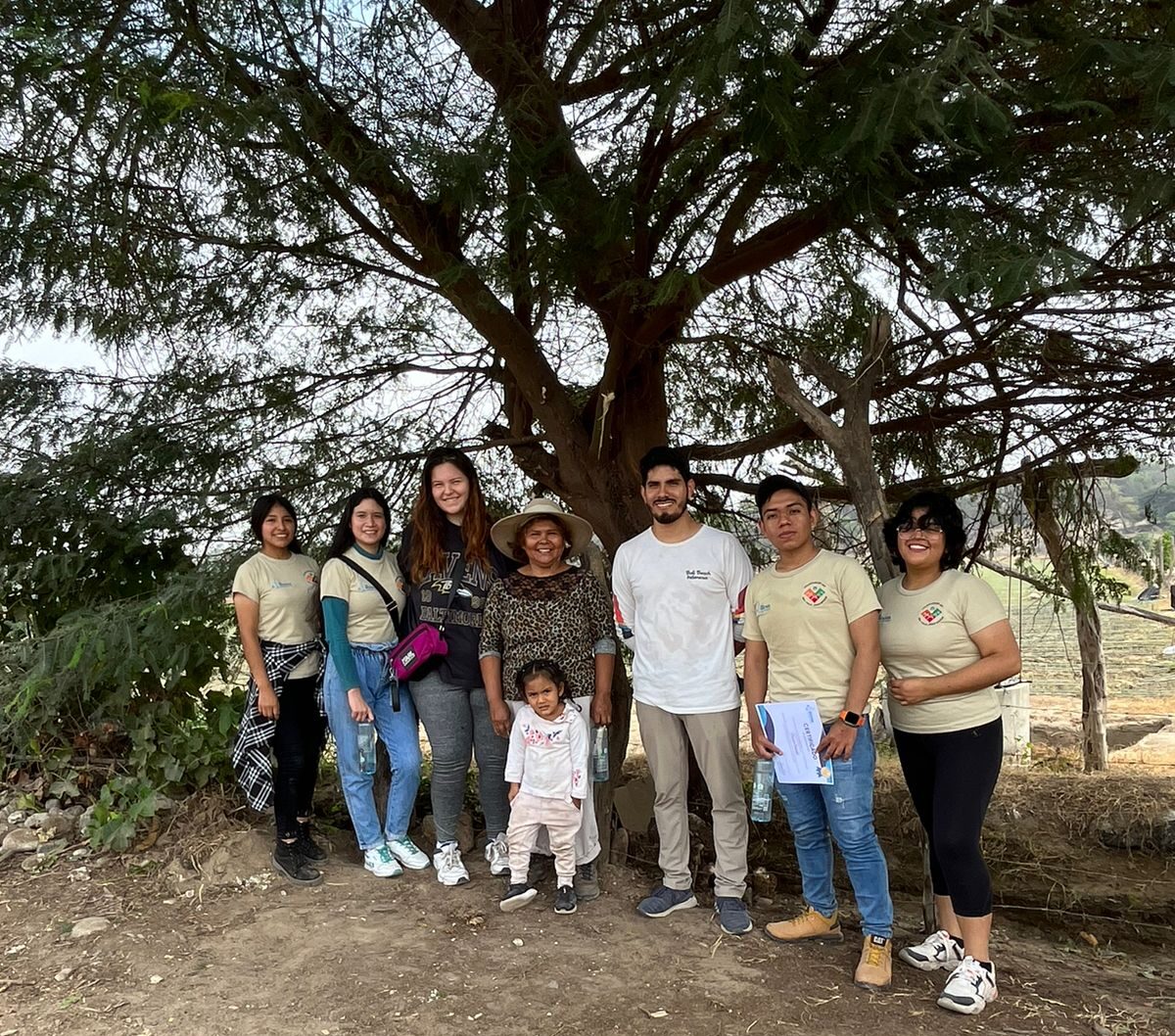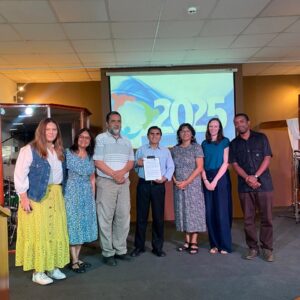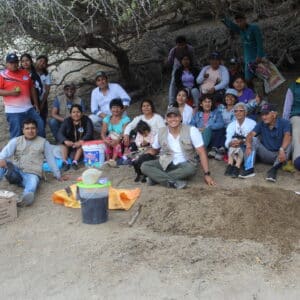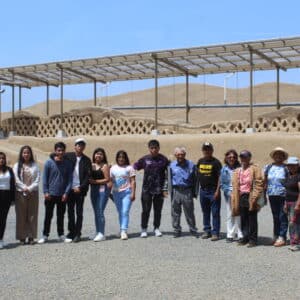By Grazia Rabasa
Pacasmayo, a picturesque coastal town in northern Peru, is traditionally recognized for its beautiful beaches and warm-hearted inhabitants. However, during my recent visit to Pacasmayo, I not only admired its natural richness and scenic views but partook in a truly transformative experience. As a member of A Rocha Perú, my mission in Pacasmayo was to truly capture the essence and mission of A Rocha Peru through my camera while participating in the day-to-day activities of the Dry Forest Project with the local communities.
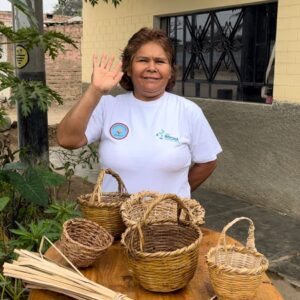
Upon arrival, the excitement in the air was palpable. A Rocha team – Ciro and Andrea- welcomed me with smiles and open arms, graciously sharing stories of the beloved town of Pacasmayo and the challenges it faces. I have never experienced such an abundant amount of hospitality. Children, young adults and older individuals welcomed me to their homes and generously gifted me avocados, watermelons, tunas and other Peruvian fruits from their gardens! This was a very humbling experience. Today, as I reminisce about my time in Pacasmayo, I think about what one of the women said to me when visiting her house. She said, “Little girl, these fruits are from my garden, its free for me…I love when people visit me…if I could, I would give you more, but this is what the season has given me so far.”
Another highlight of my journey was visiting the beautiful dry forest. Ciro, Andrea and I woke up early in the morning, at around 4 am, to experience the mighty sunrise and capture the majesty of nature waking up. It is astonishing how some places have the power to stir introspection and awaken a dormant purpose within us. That day, among the silhouettes of ancient trees, the whispers of the wind and the chirping of thousands of birds, I felt a profound realization about the importance of volunteering our time to the world. The dry forest, with its gnarled trees and the occasional rustle of unseen creatures, painted a tale of endurance. It had survived the worst of climatic odds, and yet, its beauty was undeniable. But more than its aesthetic allure, it was a testament to the interwoven fabric of life that thrives despite adversity. However, as much as it was a space of resilience, it was also an ecosystem at the brink, vulnerable to human exploitation and negligence.
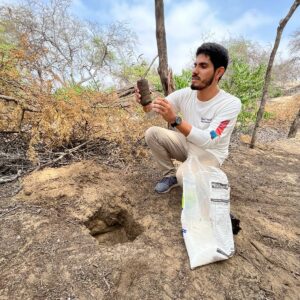
As I continued my walk back, I went house-to-house talking about climate change. A Rocha Peru endeavoured this mission with the help of young volunteers from the University of Trujillo. The next day, we planted around 20 algarrobo trees that will not only to combat desertification but also to help restore the local ecosystem. Each hole dug and every seed planted, was symbolic of hope. Everyone took to the task with an endearing enthusiasm, including a 5-year-old princess who helped gently place each sapling into the earth.
As we shifted our focus to spread awareness the community about climate change, I was moved by their receptive nature. Using simple language and relatable examples, we discussed how a warming planet affects everything from their local farms to the health of their children. Many expressed genuine concern and wanted to know more about how they could make a difference.
As my journey in Pacasmayo came to a close, I was overcome with a profound sense of gratitude. The experience had been deeply transformative. I came to Pacasmayo as an outsider, hoping to bring about positive change. But by the end, the community had embraced me as one of their own, teaching me invaluable lessons about resilience, hope, and the unbreakable human spirit.
